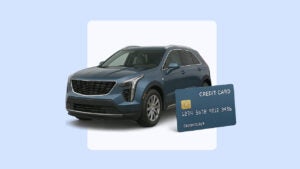Should you order foreign currency before you travel?




Key takeaways
- Ordering foreign currency ahead of a trip can help lower the cost of exchanging money and maximize the amount you get in return.
- Using airport currency exchange services is often the most expensive way to obtain foreign currency.
- Consider a mix of payment methods: some pre-ordered cash plus credit cards without foreign transaction fees for larger purchases.
Visiting another country is a great way to explore and experience other cultures, but you want to make sure you have cash on hand and the ability to withdraw cash abroad for the smoothest travel experience.
Understanding how to get foreign currency affordably can help you maximize your travel budget. Often, exchanging money before departure offers better rates and lower fees than waiting until you arrive. From bank exchange rates to ATM strategies, learn how to get the best conversion rates and avoid unnecessary fees, ensuring you’re never caught without funds during your adventures.
Understanding exchange rates
An exchange rate is how much one currency costs compared to another. For example, when exchanging U.S. dollars for euros, the rate determines how many euros you’ll receive for each dollar.
Exchange rates fluctuate constantly based on global market conditions, including supply and demand and each country’s economic stability. The global market that controls exchange rates is called the forex market, where financial institutions trade currencies using standard acronyms like USD for U.S. dollars and EUR for euros.
When budgeting for a trip, it’s a good idea to calculate exchange rates beforehand to know how far your money will go. For instance, if the current rate is 0.94 euros to the dollar, $100 would give you €94. This means your purchasing power may differ significantly from what you’re used to at home.
Options for ordering foreign currency when you travel
Ordering foreign currency before your trip can secure better exchange rates and reduce stress upon arrival. The rate you’ll receive varies by provider, with banks typically offering the most competitive rates and lowest fees.
Ordering foreign currency from your bank
Most banks let customers order foreign currency in person, by phone or online, though you’ll need an account with the institution. Processing usually takes three days or less, sometimes even the same day, but confirm the timeline with your bank. Many banks offer home delivery for a small fee — just factor in additional time for shipping.
Exchanging money in an airport
While convenient, airport currency exchange typically comes with premium pricing. You could pay up to 15 percent more than bank rates, plus face additional hidden fees. This convenience often comes at a significant cost.
Banks vs. airport kiosks
You’ll pay a currency conversion fee every time you exchange between two currencies, so you won’t get the market rate for your currency no matter where you swap it.
However, when you order currency directly from your bank, you can usually get lower conversion fees than other options.
Even with processing fees, ordering currency from your bank before departure usually saves money compared to exchanging cash after landing.If you absolutely must exchange money in an airport, use a reputable company like Travelex, which is known for fair exchange rates and low markups.
Pros and cons of exchanging currency before you travel
There are benefits and disadvantages to ordering foreign currency ahead of a trip, but it largely depends on your spending habits and goals while traveling. Here’s what to consider before you make a decision.
Pros
- Convenience: You’ll have cash on hand for immediate expenses, such as taxis and tips, and you can skip the potentially long airport lines when exchanging currency upon arrival.
- Better exchange rates: Lock in a more favorable exchange rate before your trip and avoid high fees at airports or local exchanges.
- Peace of mind: You won’t have to worry about finding ATMs or foreign banks in a new place, and you can get familiar with local currency before you land.
Cons
- Risk of unused currency: You might lose money if you don’t use all of the foreign currency, as there may be restrictions on returning or exchanging unused currency at a reasonable rate.
- Reliance on cash: Some travelers prefer not to carry a lot of cash for fear of losing it or having it stolen, and cash doesn’t earn rewards like credit cards do.
- Budgeting issues: Keeping track of cash spent can be challenging, especially while on the go. You may be tempted to spend more to use up extra foreign cash.
How to decide where to get foreign currency
Start by checking current rates using an online currency calculator to check current rates.
You can then check your bank’s website for its current exchange rates. Compare those rates to the current exchange rates offered at your destination airport to see which is more affordable. This research helps maximize your travel budget.
Managing money after arrival
Even with cash from home, you’ll need access to more local currency during your trip. Smart travelers plan ahead for this, as carrying your entire trip budget in cash creates unnecessary risk. Let’s explore the most effective ways to withdraw more money when you need it, plus how to use credit and debit cards safely to maximize value and minimize fees while traveling abroad.
ATMs abroad
Bank ATMs provide a reliable way to get local currency during your trip. Several major U.S. banks participate in international ATM networks that offer reduced or zero fees at partner locations worldwide. Check your bank’s international ATM policies before departure — some reimburse all ATM fees while others only cover specific partner locations. Many have maps you can access within their app so you can find an ATM if you need one.
Many travelers leverage Charles Schwab’s ATM fee rebates, but several other banks offer smart ways to access cash abroad. The Global ATM Alliance — a partnership between major international banks — lets customers withdraw money with reduced or zero fees at partner ATMs worldwide. This can save $10–$15 in fees on each $300 withdrawal.
Even with bank partnerships, international ATMs can come with three potential fees:
- Your bank’s international ATM fee
- The local bank’s ATM fee
- Currency conversion charges
Check which fees your bank charges or reimburses before traveling. Some banks waive their own ATM fees but don’t cover the local bank’s charges. Others reimburse all fees but add conversion charges. A few, like Schwab, refund everything — but you’ll need to open accounts well before your trip.
Credit or debit cards
Credit and debit cards offer convenience and security when traveling abroad, especially cards designed for international use. Many travel rewards cards now skip foreign transaction fees and offer purchase protection.
International card acceptance expands significantly each year, even in regions that traditionally preferred cash. Major European cities now accept contactless payments almost everywhere, while card acceptance grows steadily across Asia and Latin America. This shift makes traveling with the right cards increasingly important.
Look for cards that skip foreign transaction fees and reimburse ATM charges — these features often save more than attempting to exchange all your currency before departure. Popular travel cards combine these benefits with fraud protection and emergency card replacement services.
Remember to notify your bank of travel plans to prevent fraud alerts from freezing your cards. Keep at least two different cards from separate banks — if one stops working, you’ll have backup access to funds.
Watch out for dynamic currency conversion
If you do choose to pay with your credit or debit card, pay close attention to the card reader when it’s time to pay the bill. Most restaurants and shops across Europe now offer to show your bill in U.S. dollars instead of local currency. While seeing a €95 dinner displayed as $102 might seem helpful, this service — called dynamic currency conversion — adds a hidden 3–4 percent markup to every transaction.
Merchants push this option heavily because they profit from the marked-up exchange rate. Major hotels particularly love promoting dollar payments at checkout, where an extra 3 percent on a €1,000 hotel bill means paying $30 more than necessary. Some front desk staff even suggest it’s “safer” or “more reliable” than paying in local currency, but neither is true.
Your bank already converts foreign purchases automatically using wholesale exchange rates. By choosing to pay in the local currency, you’ll save on every purchase as long as you have a credit card with no foreign transaction fees.
The bottom line
Pre-ordering foreign currency often provides the best exchange rates and lowest fees, particularly compared to airport kiosks. This strategy works well for travelers who want immediate access to cash for essentials upon arrival.
To make the most out of your trip (and your money), consider a combined approach: Order enough cash to cover your first few days, then use a credit card with no foreign transaction fees for major purchases and bank ATMs for additional cash.
Skip dynamic currency conversion when offered, and always check your bank’s international partners before departure. Smart travelers minimize fees by making fewer, larger ATM withdrawals and paying in local currency whenever possible.
Frequently asked questions
Why we ask for feedback Your feedback helps us improve our content and services. It takes less than a minute to complete.
Your responses are anonymous and will only be used for improving our website.





